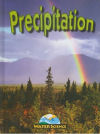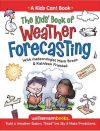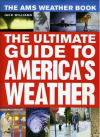


Average Yearly Precipitation for States (rain & snow)
The amounts listed below are averages for each state. Some parts of a state will get more rain and/or snow than the average amount of precipitation listed. Some parts will get less. Different amounts fall in different areas of each state.
| Average yearly precipitation by state. (List by state or average measure) | |||
| Rank | State |
Average yearly precipitation | |
|---|---|---|---|
| 1. | Alabama | 56 inches (142 centimeters) | |
| 2. | Alaska | 55 inches (140 centimeters) | |
| 3. | Arizona | 13 inches (33 centimeters) | |
| 4. | Arkansas | 49 inches (124 centimeters) | |
| 5. | California | 22 inches (56 centimeters) | |
| 6. | Colorado | 15 inches (38 centimeters) | |
| 7. | Connecticut | 47 inches (119 centimeters) | |
| 8. | Delaware | 45 inches (114 centimeters) | |
| 9. | Florida | 54 inches (137 centimeters) | |
| 10. | Georgia | 50 inches (127 centimeters) | |
| 11. | Hawaii | 110 inches (279 centimeters) | |
| 12. | Idaho | 19 inches (48 centimeters) | |
| 13. | Illinois | 38 inches (97 centimeters) | |
| 14. | Indiana | 40 inches (102 centimeters) | |
| 15. | Iowa | 32 inches (81 centimeters) | |
| 16. | Kansas | 27 inches (69 centimeters) | |
| 17. | Kentucky | 47 inches (119 centimeters) | |
| 18. | Louisiana | 57 inches (145 centimeters) | |
| 19. | Maine | 41 inches (104 centimeters) | |
| 20. | Maryland | 43 inches (109 centimeters) | |
| 21. | Massachusetts | 45 inches (114 centimeters) | |
| 22. | Michigan | 32 inches (81 centimeters) | |
| 23. | Minnesota | 26 inches (66 centimeters) | |
| 24. | Mississippi | 56 inches (142 centimeters) | |
| 25. | Missouri | 40 inches (102 centimeters) | |
| 26. | Montana | 15 inches (38 centimeters) | |
| 27. | Nebraska | 22 inches (56 centimeters) | |
| 28. | Nevada | 22 inches (56 centimeters) | |
| 29. | New Hampshire | 42 inches (107 centimeters) | |
| 30. | New Jersey | 45 inches (114 centimeters) | |
| 31. | New Mexico | 13 inches (33 centimeters) | |
| 32. | New York | 39 inches (99 centimeters) | |
| 33. | North Carolina | 50 inches (127 centimeters) | |
| 34. | North Dakota | 17 inches (43 centimeters) | |
| 35. | Ohio | 38 inches (97 centimeters) | |
| 36. | Oklahoma | 33 inches (84 centimeters) | |
| 37. | Oregon | 28 inches (71 centimeters) | |
| 38. | Pennsylvania | 41 inches (104 centimeters) | |
| 39. | Rhode Island | 44 inches (112 centimeters) | |
| 40. | South Carolina | 48 inches (122 centimeters) | |
| 41. | South Dakota | 18 inches (46 centimeters) | |
| 42. | Tennessee | 52 inches (132 centimeters) | |
| 43. | Texas | 27 inches (67 centimeters) | |
| 44. | Utah | 12 inches (30 centimeters) | |
| 45. | Vermont | 39 inches (99 centimeters) | |
| 46. | Virginia | 43 inches (109 centimeters) | |
| 47. | Washington | 38 inches (97 centimeters) | |
| 48. | West Virginia | 44 inches (112 centimeters) | |
| 49. | Wisconsin | 31 inches (79 centimeters) | |
| 50. | Wyoming | 13 inches (33 centimeters) | |

Precipitation (Water Science), by Frances Purslow. 24 pages. Publisher: Av2 by Weigl Publishers, Inc.; (July 2010) Reading level: Ages 8+. Rain, snow, and hail are all forms of precipitation. Precipitation can be helpful, as it provides necessary water to all forms of life. However, it can also be dangerous. Hail causes billions of dollars worth of damage every year to crops and property. The Water Science series is dedicated to inspiring young readers with a lifelong curiosity about science and the world. Each book covers a core component of the water cycle through visual diagrams, hands-on experiments, and compelling biographies. Young readers are guided through the science of water with engaging and accessible language. |
|||

The Kids' Book of Weather Forecasting, by Mark Breen, Kathleen Friestad . 144 pages. Publisher: Ideals Publications (August 1, 2008) Reading level: Ages 7+. Kids discover what makes the weather happen and how to predict what's ahead. Activities include making equipment to measure rainfall, wind direction and speed, humidity, and barometric pressure; recording measurements and observations in a Weather Log; and simulating weather events to demonstrate the science behind them. From foggy mornings to sunny afternoons to our changing seasons, weather forecasting is a year-round, practical science that children will have fun learning about. Perfect for budding meteorologists and science lovers. |
|||

The AMS Weather Book: The Ultimate Guide to America's Weather, by Jack Williams. 368 pages. Publisher: University Of Chicago Press (June 1, 2009) merica has some of the most varied and dynamic weather in the world. Every year, the Gulf Coast is battered by hurricanes, the Great Plains are ravaged by tornados, the Midwest is pummeled by blizzards, and the temperature in the Southwest reaches a sweltering 120 degrees. Extreme weather can be a matter of life and death, but even when it is pleasant—72 degrees and sunny—weather is still central to the lives of all Americans. Indeed, it’s hard to imagine a topic of greater collective interest. Whether we want to know if we should close the storm shutters or just carry an umbrella to work, we turn to forecasts. The most comprehensive and up-to-date guide to our weather and our atmosphere, this is the ultimate resource for anyone who wants to understand how hurricanes form, why tornados twirl, or even why the sky is cerulean blue. Written by esteemed science journalist and former USA Today weather editor Jack Williams, The AMS Weather Book, copublished with the American Meteorological Society, covers everything from daily weather patterns, air pollution, and global warming to the stories of people coping with severe weather and those who devote their lives to understanding the atmosphere, oceans, and climate. |
|||
[ HOME
| LINK TO NETSTATE
| GUESTBOOK
]
[ SPONSORSHIPS/ADVERTISING
| PRIVACY STATEMENT
| CONTACT US
]
Site designed exclusively for NETSTATE.COM by NSTATE, LLC

NETSTATE.COM is a Trademark of NSTATE, LLC.
Copyright © by NSTATE, LLC. All rights reserved.
No copyright is claimed on non-original or licensed material.
Support NETSTATE
